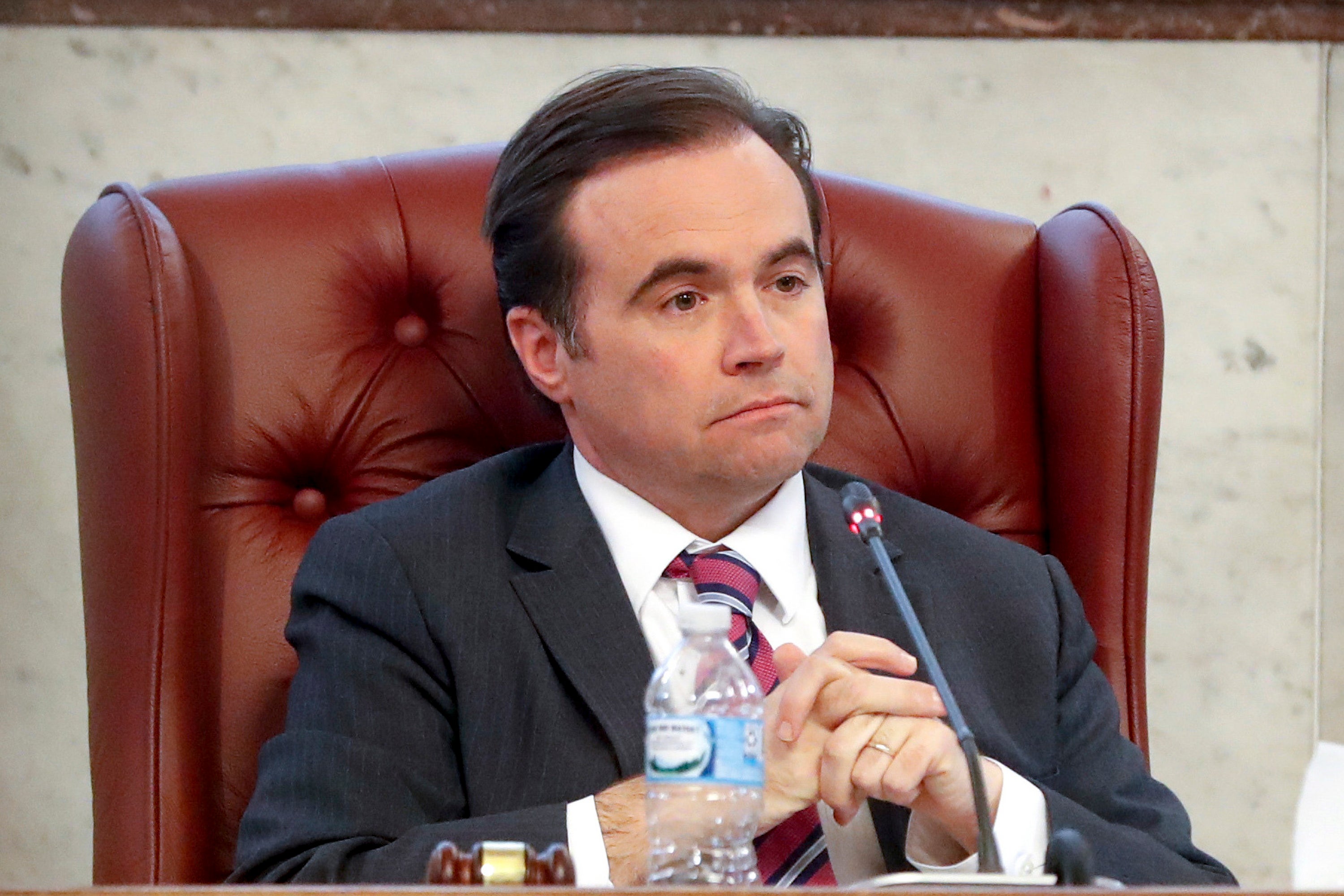Cincinnati Mayor John Cranley enters Ohio governor’s race
Two-term Cincinnati Mayor John Cranley has officially announced he's running to be governor of Ohio

Your support helps us to tell the story
From reproductive rights to climate change to Big Tech, The Independent is on the ground when the story is developing. Whether it's investigating the financials of Elon Musk's pro-Trump PAC or producing our latest documentary, 'The A Word', which shines a light on the American women fighting for reproductive rights, we know how important it is to parse out the facts from the messaging.
At such a critical moment in US history, we need reporters on the ground. Your donation allows us to keep sending journalists to speak to both sides of the story.
The Independent is trusted by Americans across the entire political spectrum. And unlike many other quality news outlets, we choose not to lock Americans out of our reporting and analysis with paywalls. We believe quality journalism should be available to everyone, paid for by those who can afford it.
Your support makes all the difference.Two-term Cincinnati Mayor John Cranley joined the race for Ohio governor on Tuesday, pledging to modernize Ohio's infrastructure and economy with proceeds from legalizing marijuana and to extract money from energy companies for homeowner rebates that will help lift family budgets.
With the launch of his campaign Tuesday, Cranley joins his friend, Dayton Mayor Nan Whaley in the Democratic field. She announced her bid April 19. Republican Gov. Mike DeWine is expected to run for a second term, a campaign that will begin with a contested primary.
Cranley, 47, had been exploring a bid for the Democratic nomination for months and had raised more than $1.3 million for the effort as of July. Whaley reported raising more than $1.6 million.
First elected mayor in 2013, Cranley is term-limited from running again this year. He points to his record as chief executive of a major city that's growing while others languish to show his capability to lead the state.
“Ohio needs a comeback and deserves a governor who has led a comeback,” Cranley told The Associated Press in an interview. “It's not going to be easy to take a state like Ohio, which like so many in the Midwest has been in decline, and to have it come back again, but that's what we're going to do.”
He said the GOP-controlled state Legislature has been tainted by corruption and puts the interests of big corporations over workers. He said he will make “jobs, jobs, and more jobs” his priority.
Cranley’s economic plan calls for creating 30,000 new $60,000-a-year jobs annually in such areas as advanced manufacturing and renewable energy, and to improve Ohio roads, water systems and broadband networks.
He proposes using tax revenue from legalizing recreational marijuana, now legal in neighboring Michigan and 17 other states, to pay for his programs. He also would reconfigure Ohio's privatized job creation office, JobsOhio. He also proposes offering Ohio homeowners $500 dividends paid for from energy company profits.
As mayor, Cranley, who twice lost congressional races against Republican U.S. Rep. Steve Chabot of Cincinnati, aggressively pursued a new soccer stadium project that helped the city land a Major League Soccer franchise and helped Cincinnati police acquire a cutting-edge ShotSpotter gunshot detection system.
His 2018 feud with a city manager who accused Cranley of overstepping his authority to undermine the city manager's role drew criticism from some fellow Democrats. The city manager eventually resigned with a severance agreement.
Although Cranley, a Roman Catholic, personally opposes abortion, he doesn't think government should pass restrictions on the procedure that spark expensive, often unsuccessful, legal battles because “it's just not a good use of scarce resources.”
“I'm pro-choice. I've struggled as a matter of faith,” said Cranley, who supports same-sex marriage.
He and Whaley, also first elected mayor in 2013, consider each other friends and are in communication most weeks.
“She is a close friend and I think she's done a lot of good things for Dayton," Cranley said. He said, with both running, "that means we're going to end up with a good candidate for governor.”
Whaley unveiled her own jobs plan on Monday, just steps from Cranley’s office in Cincinnati. It calls for a $15 minimum wage and, like Cranley’s, investments in renewable energy. She also proposes directing state money and assistance to those businesses that pay a fair wage and kickstarting a ReInvent Ohio initiative for entrepreneurs.
Asked whether the party should be trying for a diverse field next year, Cranley, who is white, replied: “I trust the Democratic primary voters to pick the best candidate to win the general election." He said he has been committed to diversity across city departments and within his own staff as mayor and would continue that trend as governor.
Cranley, a Harvard-educated lawyer, and his wife, Dena, have a son.
___
Former AP reporter Dan Sewell contributed to this report from Cincinnati.